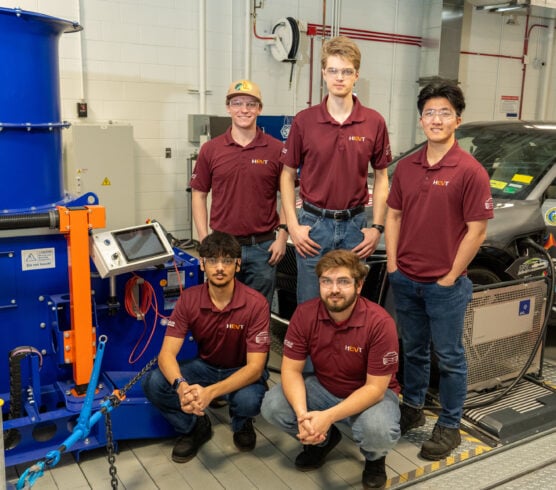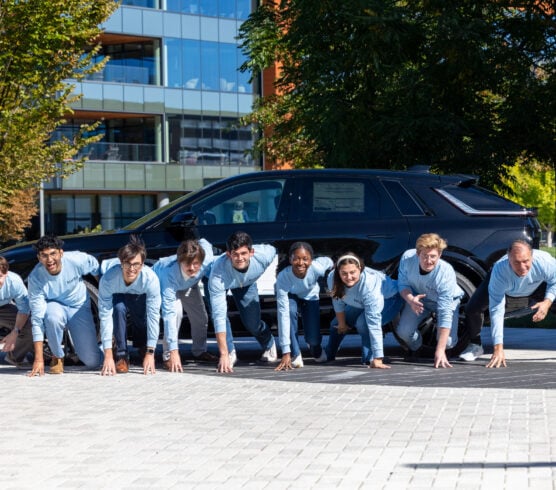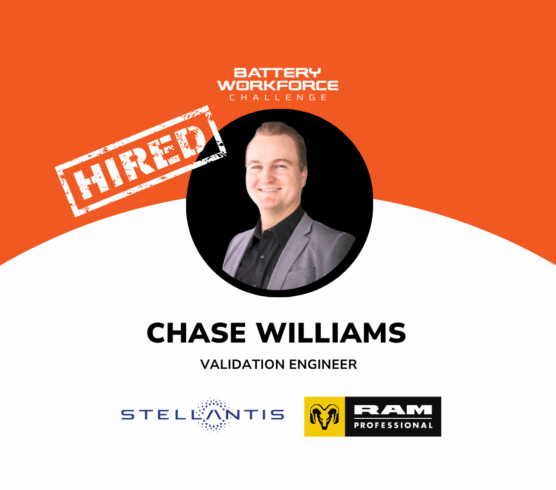The University of Tennessee, Knoxville EcoCAR Mobility Challenge team collaborated with the U.S. Department of Energy’s Vehicle Technology Office to record a special-edition episode of The EcoCAR Podcast. Project manager J.P. Nelms hosted this episode with Mark Smith, Technology Integration Program Manager within the Vehicle Technologies Office. The Vehicle Technologies Office focuses on electric vehicles, energy efficient mobility systems, and advanced engine and fuel technologies. Smith has been a part of the Vehicle Technology Office since 2010 and has seen firsthand the dramatic changes in the transportation sector over the past decade, and bared witness to the lasting impact the Advanced Vehicle Technologies Competitions have made on students, universities, and transportation industry.
During the episode, J.P. asks Smith a series of questions that our team developed to help us better understand the technology areas his team works on, and his specific role of getting this technology integrated and deployed at scale. One example is with the potential of V2X technology to reduce emissions, congestion, and collisions if deployed properly. In the podcast, Smith brings up the challenges and dangers associated with deploying at-scale without a unified direction. Smith discusses the VTO’s role in this deployment and how they unify the technological developments for an integrated approach that realizes the potential benefits of the technology. Smith’s insights into advanced vehicle technology integration give a real-world context to the practicalities of a scaled deployment of the technology that EcoCAR teams across North America are developing as a part of the competition.
Beyond discussing the technology behind the EcoCAR Mobility Challenge, we discuss how DOE and AVTCs adapt to meet the changing needs of the industry and how the students in-turn contribute to these technological advancements and business model adaptations. Finally, Smith outlines what excites him about the advancements and deployment of CAVs and V2X technologies, and the Mobility as a Service (MaaS) business model.
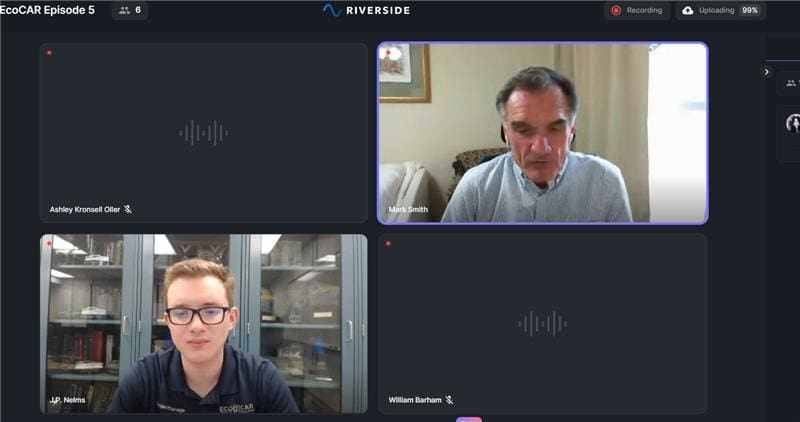
Smith’s analysis of V2X and the electrification of these vehicles is best summed up below:
The problem we have is gasoline has been around for over 100 years and everyone is used to the convenience of a gasoline station. You never have to think, how do I put energy into my car? In this new age of EV battery charging you’ve got to think about it. How do we help individual consumers and fleets understand charging and electrification? There is so much more than just the vehicle and the technology, but how do we actually manage it?
Reviewing these technologies and having the opportunity to learn from Smith and his years of experience on these projects was a great moment for UT’s team, and we are excited to share the conversation with the EcoCAR Podcast listeners. The podcast is now available on all streaming platforms.
Do you want to learn more about the recording, the questions we prepared, and/or information about Smith and his background? If so, please reach out to the UT EcoCAR Communications Team: [email protected].
Learn More about the Podcast Guests:
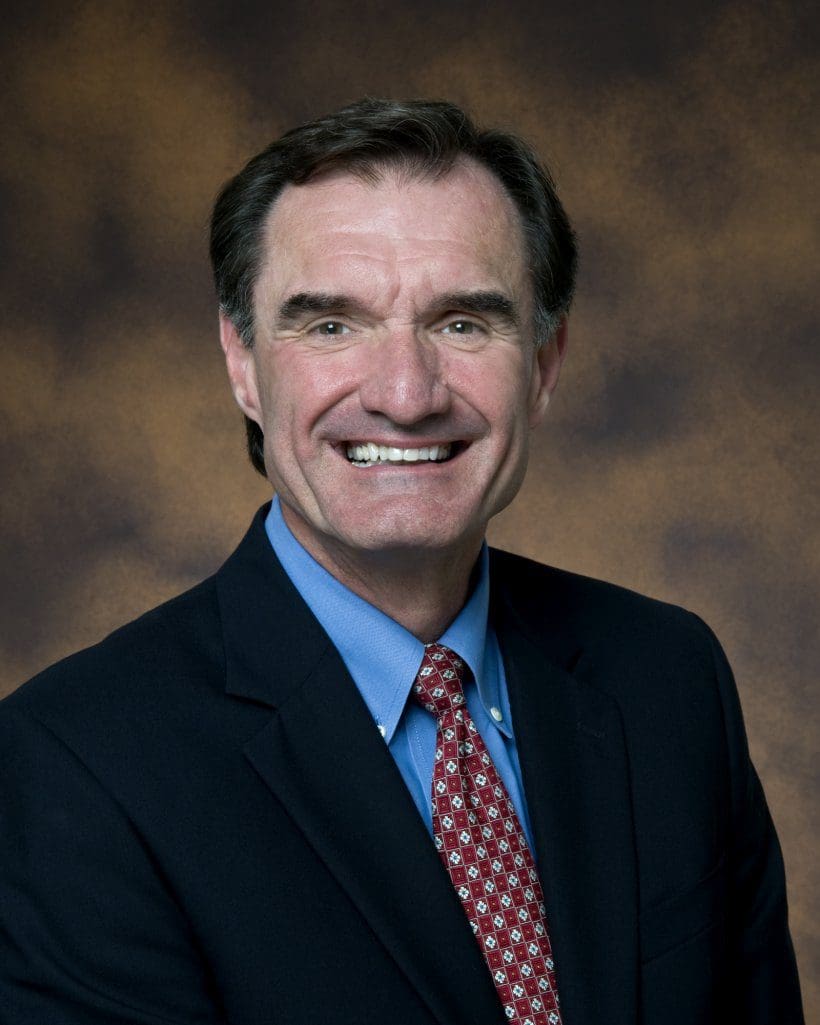
Mark Smith: Technology Integration Program Manager, Vehicle Technologies Office, U.S. Department of Energy
Mark Smith is the Technology Integration Program Manager within the U.S. Department of Energy’s (DOE) Vehicle Technologies Office. In this role, he oversees a broad technology portfolio, which is focused on accelerating the development and widespread use of advanced vehicle technologies to advance affordable, domestic transportation fuels, and other fuel-saving technologies and practices. The Technology Integration Program portfolio includes Alternative Fuels, Fuel Economy, Electrification, Energy Efficient Mobility Systems, and the Alternative Fuels Regulatory Program.
Before joining DOE in 2010, Mark was an alternative fuel vehicle consultant to American Honda. In this position, he promoted the use of Honda’s advanced technology vehicles to public and private fleet managers and implemented programs to increase adoption of these vehicles. Mark also understands that alternative fuel vehicle use hinges upon the development of refueling/re-charging infrastructure. From his previous positions with FuelMaker and Clean Energy, he has provided alternative refueling solutions ranging from home refueling of a single vehicle to some of the largest commercial, airport, and transit fueling stations in the United States.
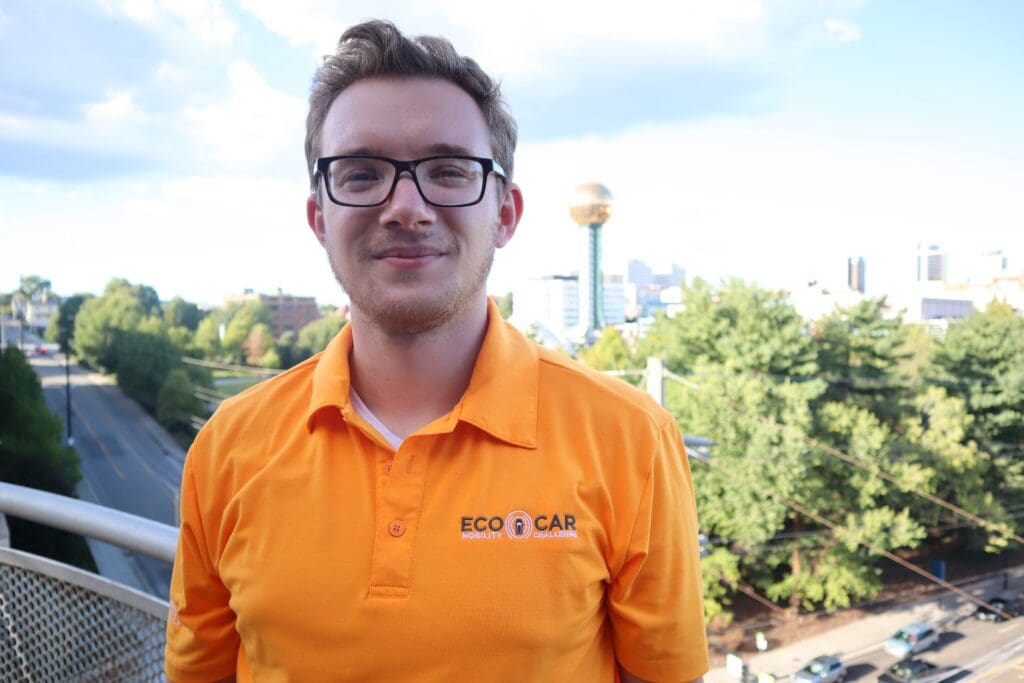 J.P. Nelms: EcoCAR Project Manager – University of Tennessee, Knoxville
J.P. Nelms: EcoCAR Project Manager – University of Tennessee, Knoxville
J.P. is a Dual MBA/MS Engineering Student at the University of Tennessee in Knoxville. He completed his Bachelor of Science in Mechanical Engineering at Tennessee Tech University in 2020. While at Tennessee Tech, J.P. developed a strong background in mechanical design, particularly from his rotational co-op with SCI Technology Inc. developing fully autonomous drones. J.P. is passionate about developing and deploying new technology. He chose to pursue his MBA to develop a holistic view of business, particularly with the strategy, planning, and introduction of new products. He joined UT’s EcoCAR Mobility Challenge team as Project Manager during at the start of the third year of challenge. He served as a product manager intern for Bosch Engineering GmbH during his MBA internship, leading the development of a Power BI dashboard for data-driven resource decisions. J.P. enjoys working with his team and looks forward to the Year 4 Competition, which will be his first in-person EcoCAR Event. Upon graduation at the end of May, he will be entering the workforce and is actively pursuing opportunities in Mechanical Engineering Design, particularly within research and development groups.




